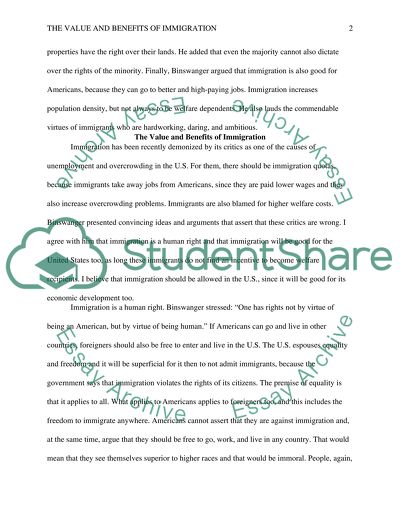Cite this document
(“Reaction paper for the Article Immigration Quotas vs. Individual”, n.d.)
Reaction paper for the Article Immigration Quotas vs. Individual. Retrieved from https://studentshare.org/history/1594924-reaction-paper-for-the-article-immigration-quotas-vs-individual-rights-the-moral-and-practical-case-for-open-immigration
Reaction paper for the Article Immigration Quotas vs. Individual. Retrieved from https://studentshare.org/history/1594924-reaction-paper-for-the-article-immigration-quotas-vs-individual-rights-the-moral-and-practical-case-for-open-immigration
(Reaction Paper for the Article Immigration Quotas Vs. Individual)
Reaction Paper for the Article Immigration Quotas Vs. Individual. https://studentshare.org/history/1594924-reaction-paper-for-the-article-immigration-quotas-vs-individual-rights-the-moral-and-practical-case-for-open-immigration.
Reaction Paper for the Article Immigration Quotas Vs. Individual. https://studentshare.org/history/1594924-reaction-paper-for-the-article-immigration-quotas-vs-individual-rights-the-moral-and-practical-case-for-open-immigration.
“Reaction Paper for the Article Immigration Quotas Vs. Individual”, n.d. https://studentshare.org/history/1594924-reaction-paper-for-the-article-immigration-quotas-vs-individual-rights-the-moral-and-practical-case-for-open-immigration.


